.380 Caliber for Self-Defense: Reliable Carry Option?
Amidst the ongoing debate among gun enthusiasts, the .380 ACP finds itself in a peculiar position, often compared to its more formidable counterpart, the 9mm, and scrutinized for its effectiveness in self-defense scenarios. Dubbed the “little sibling” of the ammunition world, it raises questions about its adequacy in providing reliable protection. Critics argue that it lacks the necessary stopping power, likening its use to being underarmed in critical situations.
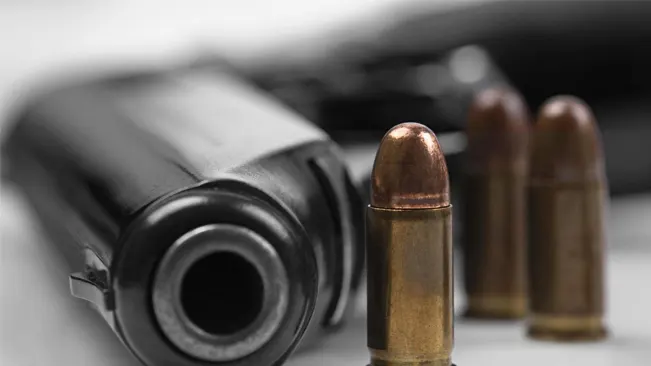
However, its advocates highlight the .380 ACP’s advantages, such as lower recoil and compact size, which offer ease of handling and concealment, making it an appealing choice for those prioritizing discretion and comfort in a carry weapon. This dichotomy fuels the ongoing dialogue within the firearms community, as individuals weigh the trade-offs between power and practicality in their personal defense strategy.
History and Development
The .380 ACP (Automatic Colt Pistol) caliber, a creation of the legendary firearms designer John Moses Browning, made its first appearance in the early 20th century, around 1908. It was initially introduced for use in the Colt Model 1908 pocket semi-automatic, catering to a growing demand for more compact and easily concealable firearms suitable for personal protection and law enforcement. The .380 ACP, also known globally as the 9mm Short, found a sweet spot between the need for a less intimidating recoil and adequate stopping power within close quarters.
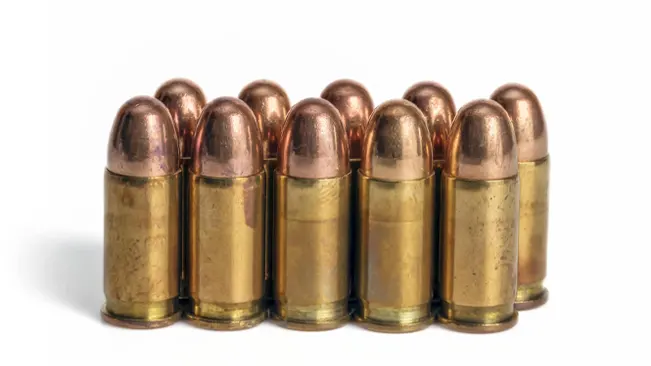
Over the years, this caliber has been embraced by various military and police forces worldwide, especially in Europe, before making a significant comeback in the civilian market, particularly among concealed carry enthusiasts. Its enduring popularity is a testament to Browning’s genius in balancing firepower and manageability, carving out a niche for the .380 ACP that persists in today’s diverse firearms landscape.
.380 vs. 9mm: A Comparative Analysis
Choosing between the .380 ACP and the 9mm is a common dilemma in personal defense firearms, each offering distinct advantages. The .380 ACP is prized for its concealability and lighter recoil, making it ideal for compact carry options. The 9mm, known for its stopping power and broad acceptance in law enforcement, caters to those prioritizing performance. Below is a comparative analysis that succinctly outlines the key differences and similarities between these two popular calibers, aimed at aiding in an informed firearm selection.
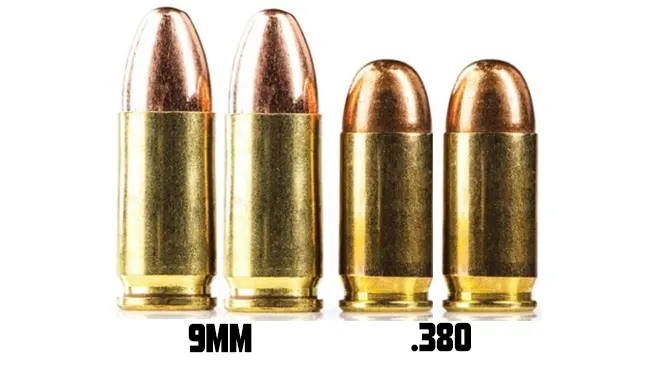
| Feature | .380 ACP | 9mm |
|---|---|---|
| Caliber | 9mm (0.354 inches) | 9mm (0.355 inches) |
| Case Length | 17.3mm (0.680 inches) | 19.15mm (0.754 inches) |
| Overall Length | 25mm (0.984 inches) | 29.69mm (1.169 inches) |
| Bullet Weight | Typically 85-95 grains | Typically 115-147 grains |
| Muzzle Velocity | 900-1050 feet per second | 950-1400 feet per second |
| Muzzle Energy | 160-200 foot-pounds | 280-400 foot-pounds |
| Recoil | Generally lighter | Generally heavier |
| Concealability | Excellent, due to smaller firearms | Good, with a wide range of compact options |
| Stopping Power | Considered adequate for close range | Superior, with greater energy transfer |
| Popular Use | Concealed carry, backup weapons | Law enforcement, military, self-defense |
| Ammunition Cost | Slightly higher than 9mm | Generally lower, due to widespread use |
Effectiveness of .380 for Self-Defense
The effectiveness of the .380 ACP for self-defense is a nuanced topic, often debated among firearms enthusiasts. Despite its smaller size compared to more powerful cartridges like the 9mm, the .380 ACP can be quite effective in self-defense situations, particularly within the close quarters where most civilian defensive encounters occur.
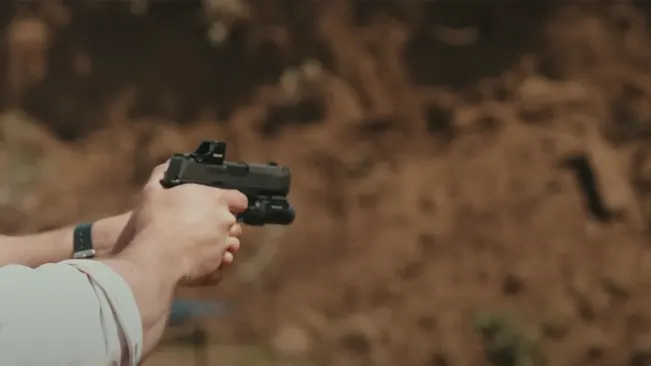
Its lighter recoil allows for quicker follow-up shots, an essential factor in high-stress situations. Modern advancements in ammunition technology have significantly enhanced the .380’s capabilities, with high-quality hollow-point rounds offering reliable expansion and penetration, key components for stopping a threat.

Additionally, the .380 ACP’s compact nature enables it to be carried in smaller firearms, ensuring that it is more likely to be on hand when needed. While it may not pack the same punch as larger calibers, its blend of manageability, concealability, and potent ammunition options make the .380 ACP a viable choice for personal defense, particularly for those who prioritize ease of carry and handling.
Popular .380 Firearms
The .380 ACP caliber is favored for its balance of power and compactness, making it a top choice for concealed carry. Among the plethora of options, five firearms stand out for their reliability, design, and overall performance.
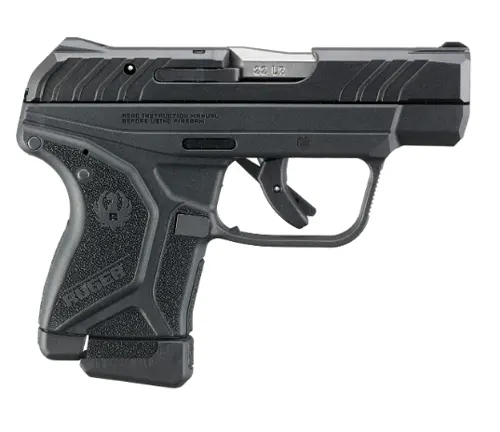
The Ruger LCP II is a highly popular choice among .380 ACP carriers, renowned for its ultra-compact design and improved ergonomics over its predecessor. This lightweight, polymer-framed pistol features a short, crisp trigger pull that enhances accuracy and a built-in safety system. Ideal for deep concealment, the LCP II fits discreetly in a pocket or purse, making it a top pick for those seeking a reliable, easy-to-carry self-defense weapon.
The Sig Sauer P238 is known for its 1911-inspired design, offering shooters a small-scale version of the classic platform chambered in .380 ACP. Its all-metal frame contributes to a stable shooting experience, reducing felt recoil. The P238 stands out for its reliability, precision craftsmanship, and a variety of stylish finishes. With its single-action trigger and excellent ergonomics, the P238 appeals to those who appreciate both form and function in their carry weapon.
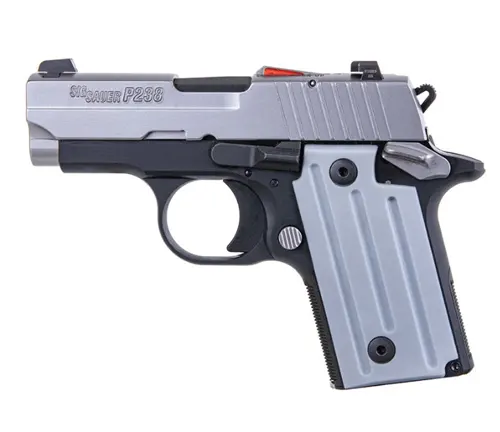
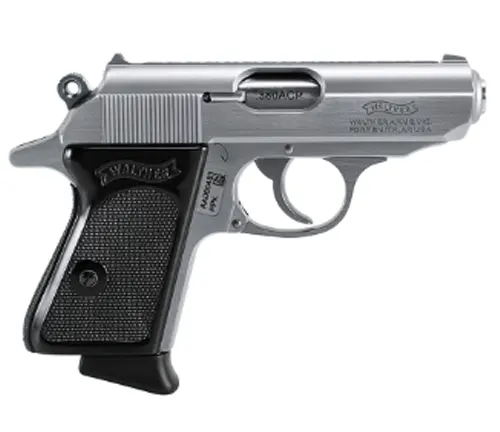
The Walther PPK is an iconic pistol with a storied history, famously associated with James Bond. Its timeless design and proven reliability have made it a favorite for concealed carry and as a backup firearm. The PPK features a double-action/single-action trigger, providing an added layer of safety while maintaining readiness. Its steel frame and fixed barrel design contribute to consistent accuracy, making the PPK a classic choice for .380 ACP enthusiasts.
The Glock 42 is the smallest pistol in Glock’s lineup, designed specifically for the .380 ACP cartridge. It maintains the brand’s reputation for reliability and durability, with a polymer frame and the familiar safe-action trigger system. Despite its small size, the G42 offers comfortable ergonomics and manageable recoil, making it suitable for a wide range of shooters. Its simplicity and effectiveness make the Glock 42 a solid choice for everyday carry.
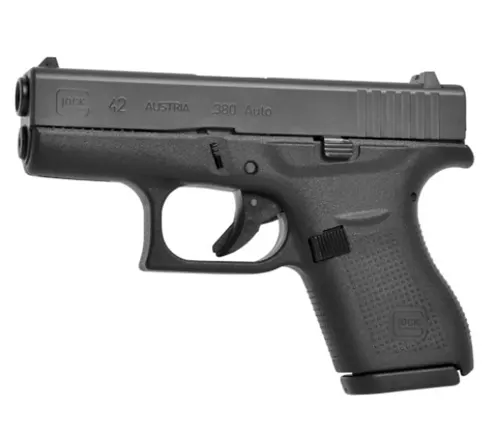
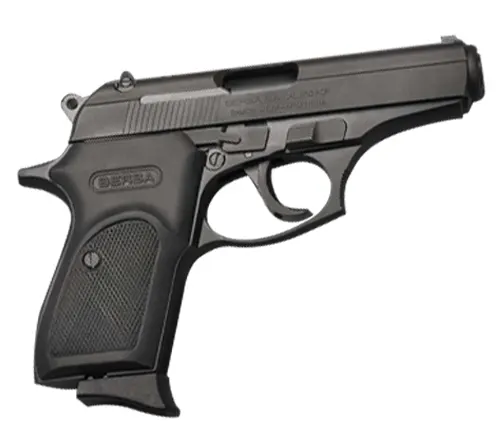
The Bersa Thunder 380 draws inspiration from the Walther PPK, offering a budget-friendly option without compromising on quality. Known for its comfortable grip and smooth trigger, the Thunder 380 provides an enjoyable shooting experience. It features a double-action/single-action trigger mechanism and an integral safety system, making it a safe and reliable option for concealed carry. With its solid construction and accuracy, the Bersa Thunder 380 presents an excellent value for shooters looking for an effective .380 ACP pistol.
Pros and Cons
The .380 ACP caliber is a popular choice for concealed carry, valued for its balance between size and firepower. While it offers several advantages, especially in terms of concealability and ease of use, there are also notable drawbacks to consider, particularly regarding its stopping power and effectiveness in various self-defense scenarios. Understanding the pros and cons of the .380 ACP can help individuals make informed decisions about whether this caliber meets their specific needs for personal protection. Here’s a concise overview of the key benefits and limitations:
Pros of Using .380 ACP Caliber
- Concealability: The compact design of .380 ACP firearms makes them perfect for concealed carry, allowing for easy concealment under clothing or in small bags. This feature is ideal for those who need to keep their self-defense weapon discreet but accessible.
- Low Recoil: The .380 ACP is known for its manageable recoil, which enhances control and accuracy, especially for those new to shooting or sensitive to the kick of larger calibers. This makes it easier to stay on target and effectively use the firearm when it matters most.
- Ease of Use: Firearms chambered in .380 ACP are notably user-friendly, with simple operation and ergonomic designs that cater to a broad range of users, including those with smaller hands or limited shooting experience, promoting confidence and proficiency.
- Versatility: The .380 ACP’s versatility is seen in the wide array of handgun models available, from pocket-sized pistols to more substantial versions, offering choices to suit personal preferences for grip, capacity, and style.
- Ammunition Advancements: Modern .380 ACP hollow-point rounds have significantly improved in performance, offering reliable expansion and stopping power for self-defense. These advancements make the .380 ACP a more formidable option for personal protection.
Cons of Using .380 ACP Caliber
- Limited Stopping Power: The .380 ACP’s stopping power is less than larger calibers, which can be concerning for self-defense. While advancements in ammo have improved its performance, its inherent power may not suffice in all situations, necessitating a strategic approach to its use.
- Range and Penetration: Suited for close encounters, the .380 ACP’s effectiveness decreases over distance and against barriers. This limitation highlights the importance of understanding the operational range and tactical positioning in self-defense scenarios.
- Ammunition Cost: .380 ACP ammo tends to be pricier than more common calibers, affecting long-term training and practice expenses. Regular shooters should factor in these costs when choosing this caliber for ongoing use.
- Over-reliance on Shot Placement: Effective deployment of the .380 ACP heavily relies on precise shot placement, a challenge under stress. Consistent training is vital to ensure accuracy when it counts, given the caliber’s lower margin for error.
- Perception: The .380 ACP is sometimes viewed skeptically for self-defense due to doubts about its power and utility. Overcoming this perception requires knowledge of the caliber’s real-world applications and limitations, aligning them with individual defense strategies.
User Experiences and Testimonials
Let’s take a closer look at what real users have to say about the .380 ACP. There’s nothing quite like hearing from folks who carry and rely on this caliber day in and day out. Whether they’re long-time enthusiasts or newcomers to the world of concealed carry, their experiences offer a wealth of insight. These personal stories and reflections shed light on how the .380 ACP performs in everyday situations, beyond the specs and technical jargon. Hearing directly from users gives us a more nuanced view of the caliber’s strengths and limitations, and what it’s really like to trust the .380 ACP for personal protection.
Training and Handling for .380 Carriers
For those who choose the .380 ACP as their go-to caliber for concealed carry, mastering the nuances of handling and training with this firearm is essential for effective self-defense. The .380 ACP’s compact size and manageable recoil make it an attractive option, but like any firearm, proficiency comes with practice and understanding. Below are some targeted training and handling tips designed to help .380 carriers optimize their readiness and ensure safety in carrying and potentially using their firearm in a defensive scenario:
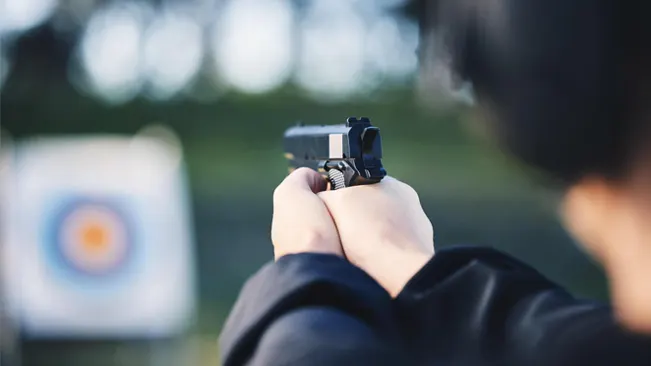
- Familiarize with Your Firearm: Spend quality time getting to know your .380 pistol, including its specific features, safety mechanisms, and how it disassembles for cleaning.
- Regular Practice: Consistently visit the shooting range to practice shooting your .380 ACP. This helps in building muscle memory and improving accuracy and confidence.
- Dry Fire Training: Engage in dry fire practice (ensuring the firearm is unloaded and pointed in a safe direction) to work on trigger control and sight alignment without the cost of ammunition.
- Work on Recoil Management: Although .380 ACPs have relatively low recoil, mastering recoil control is crucial for quick, accurate follow-up shots.
- Drill with Defensive Ammo: Occasionally practice with the same ammunition you carry for self-defense to understand how it feels and performs differently from target ammo.
- Holster Familiarization: Regularly train with the holster you use for carrying your .380 ACP to ensure swift, safe drawing and re-holstering under stress.
- Engage in Scenario-Based Training: Participate in training that simulates real-life scenarios to prepare for potential self-defense situations.
- Maintenance Routine: Keep your firearm clean and well-maintained to ensure reliability when it counts.
- Understand Over-Penetration Risks: Be aware of your ammunition’s capabilities and the risks of over-penetration in various environments.
- Legal Knowledge: Stay informed about local laws and regulations regarding concealed carry and the use of force for self-defense.
- Mindset and Awareness Training: Cultivate situational awareness and a defensive mindset to avoid potential threats and understand when it’s appropriate to use your firearm.
Legal and Ethical Considerations
When choosing to carry a firearm like the .380 ACP for self-defense, there are several legal considerations that individuals must be aware of to ensure responsible and lawful use. These considerations vary by jurisdiction but generally include:
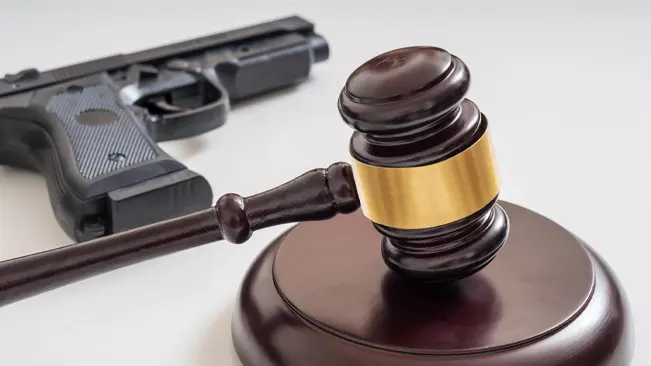
- Concealed Carry Permits: Many regions require a permit or license to carry a concealed firearm. Applicants may need to complete specific training, pass background checks, and meet other criteria.
- Firearm Registration: Some areas mandate the registration of firearms, including .380 caliber pistols. It’s essential to comply with local registration laws and procedures.
- Use of Force Laws: Understanding the legal framework surrounding self-defense and the use of deadly force is crucial. Laws such as “Stand Your Ground” and “Castle Doctrine” vary significantly between jurisdictions and dictate when and how you can legally defend yourself.
- Transportation and Travel: Laws governing the transportation of firearms, both within and across state lines, can affect how you carry your .380 ACP. This includes regulations about how the firearm should be stored in a vehicle and considerations for air travel.
- Location Restrictions: Certain places, such as government buildings, schools, and private properties, may have specific rules prohibiting firearms, regardless of permit status.
- Ammunition Types: Some jurisdictions have restrictions on the types of ammunition that can be legally carried for self-defense, which could affect choices for .380 ACP carriers.
- Reciprocity Agreements: For those who travel, understanding which states recognize your concealed carry permit through reciprocity agreements is vital to remaining compliant with local laws.
- Reporting Requirements: In the event of a defensive incident involving your firearm, there may be legal obligations to report the incident to law enforcement promptly.
- Liability and Insurance: Carrying a firearm for self-defense can expose individuals to legal and financial risks. Some opt for self-defense insurance to mitigate potential legal expenses.
- Ongoing Education: Laws related to firearms and self-defense are subject to change. Staying informed about current legislation and legal interpretations is essential for law-abiding carriers.
Expert Opinions
Experts in personal defense view the .380 ACP as a practical choice for concealed carry, especially for those valuing ease of carry and comfort. While recognizing its limitations compared to bigger calibers, they note improvements in ammunition that enhance its defensive potential. The key, they advise, is in understanding the .380’s capabilities, particularly for close-range defense, and in rigorous training to ensure accuracy and effectiveness. For individuals looking for a concealable and user-friendly firearm, the .380 ACP, with the right preparation, can serve as a reliable self-defense tool.
Conclusion
In conclusion, the .380 ACP offers a practical solution for those seeking a concealable and user-friendly option for personal defense. Its value is highlighted by positive user feedback and a range of suitable firearms, emphasizing the importance of regular training and legal awareness for carriers. While it may not match the power of larger calibers, with informed and responsible use, the .380 ACP stands as a dependable choice for everyday carry and self-defense situations.
FAQs
- What is .380 ACP?
The .380 ACP (Automatic Colt Pistol) is a rimless, straight-walled pistol cartridge developed by John Moses Browning. It is also known as 9mm Browning Short or 9×17mm. - How does the .380 ACP compare to the 9mm in terms of power?
The .380 ACP is generally less powerful than the 9mm. It has a shorter range and less energy, making it suitable for smaller, more concealable firearms. - Is the .380 ACP effective for self-defense?
Yes, the .380 ACP can be effective for self-defense, especially at close ranges. Its effectiveness depends on factors like shot placement, ammunition type, and the situation. - What are the advantages of carrying a .380 ACP for personal defense?
The main advantages include its compact size, lower recoil, and ease of use, making it an ideal choice for concealed carry, especially for individuals with smaller hands or those new to shooting. - Can the .380 ACP stop an attacker?
While no caliber can guarantee a “stop” with a single shot, the .380 ACP, with proper ammunition and accurate shot placement, can be effective in neutralizing a threat. - What types of firearms typically chamber .380 ACP?
The .380 ACP is commonly used in compact and subcompact pistols, designed for concealed carry and ease of use. - What is the best .380 ammunition for self-defense?
Jacketed hollow point (JHP) rounds are generally considered the best .380 ammunition for self-defense due to their expansion capabilities, which can create larger wound channels. - How does recoil compare between .380 ACP and larger calibers?
The .380 ACP typically has less recoil than larger calibers like the 9mm and .45 ACP, making it more manageable for rapid follow-up shots and for shooters with less hand strength. - Are there any specific training considerations for .380 ACP carriers?
Yes, carriers should practice with the specific .380 ACP firearm they intend to carry, focusing on handling, accuracy, and rapid follow-up shots due to the caliber’s limited stopping power. - How does the .380 ACP perform in ballistic gel tests?
In ballistic gel tests, .380 ACP rounds, especially modern JHP designs, can show effective penetration and expansion. However, performance varies by brand and specific ammunition type, so it’s important to research and test ammunition for reliable self-defense use.
Latest Post
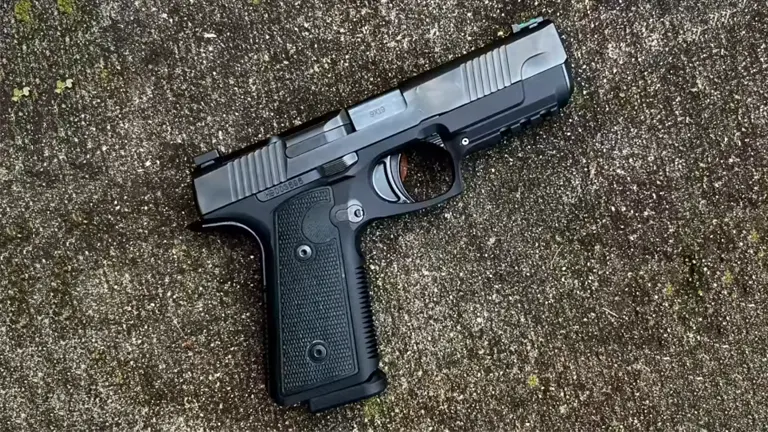
Daniel Defense H9 Review
Discover the Daniel Defense H9 in 9mm Luger, a semi-auto with a 4.5″ cold hammer-forged...March 4, 2024
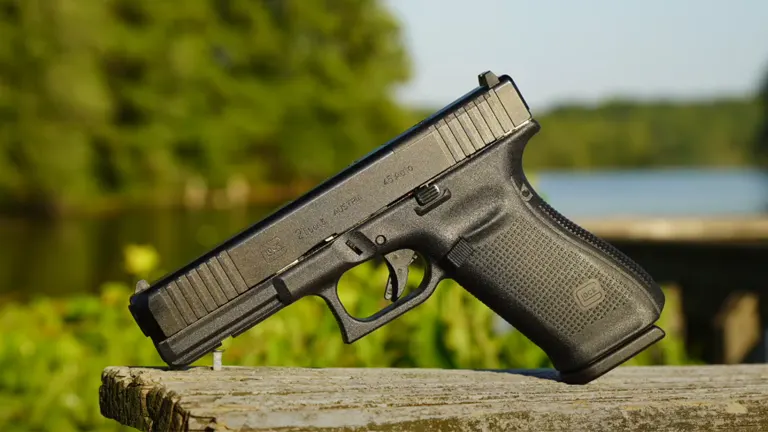
Glock 21 Review
Experience the power of the Glock 21 in .45 ACP, featuring a 13-round capacity, 4.60″...March 4, 2024
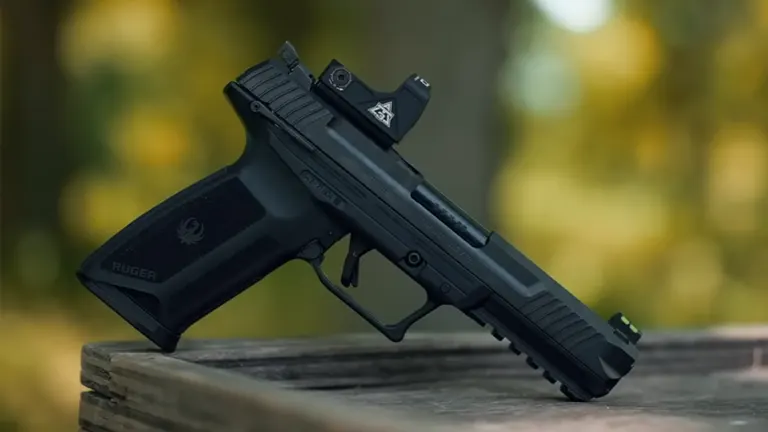
Ruger 5.7 Review
Meet the Ruger 5.7, chambered in 5.7x28mm, offering a high capacity of 20+1 rounds. It...March 4, 2024
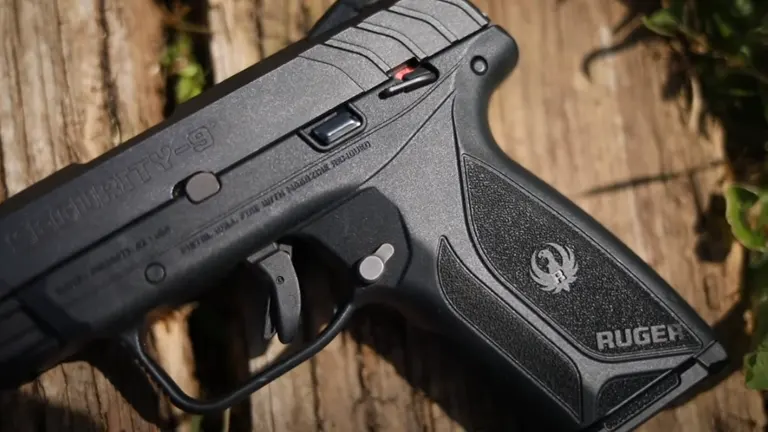
Ruger Security-9 Review
Explore the Ruger Security-9, a 9mm Luger with a 4″ barrel and a 15+1 capacity,...March 4, 2024
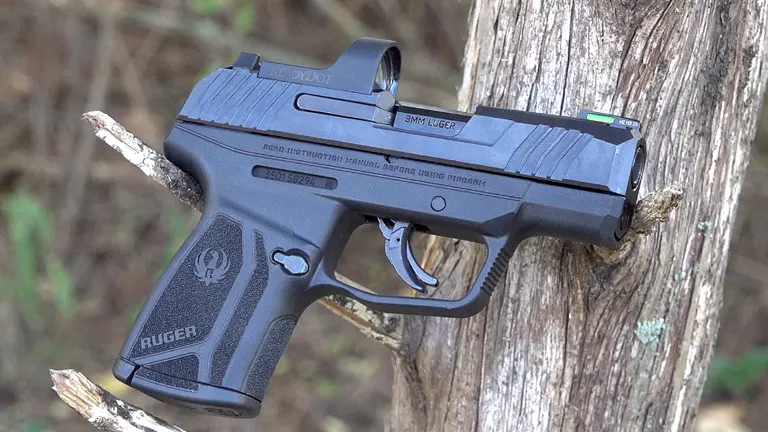
Ruger Max-9Â Review
Discover the Ruger Max-9, a 9mm Luger pistol with a 3.2″ barrel and a slim...March 4, 2024
Weekly Newsletter
Do you want to get notified when a new article is added to Guncritic? Sign up for our newsletter and you'll be among the first to find out about new articles and reviews.
Comment